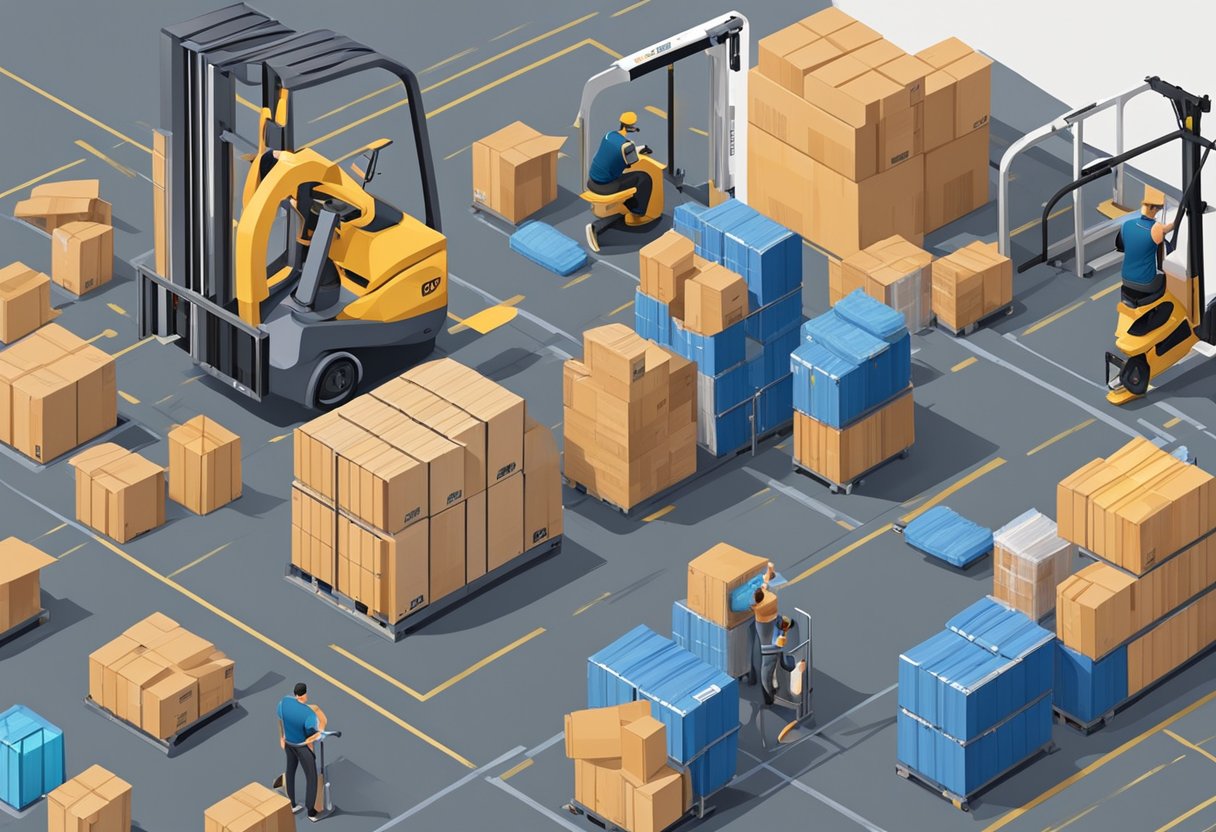Those who distribute building materials at large scale often turn to Chinese manufacturers for their supply. These distributors procure construction materials in substantial volumes and further sell them under their branded names. They have set up networks to source various building materials and offer them to construction firms, design agencies, and other entities.
- Minimum Order Quantity (MOQ): Often set to ensure bulk transactions.
- Wholesale Rates: Competitive pricing to benefit from economies of scale.
- Supply Chain Management: Efficient systems to handle large orders and distribution.
Real Estate Developers
Individuals and firms involved in enhancing and refurbishing properties frequently source directly from China. These buyers require high-quality materials in considerable quantities for tasks such as developing raw land or updating existing structures, with the intent to enhance the value of real estate holdings.
- Bulk Purchases: Sourcing large amounts to cater to extensive projects.
- Request for Quotation (RFQ): Soliciting detailed pricing for planned developments.
- Delivery Schedules: Coordination to align with project timelines.
Construction Overseers
These professionals manage the execution of building projects and are tasked with obtaining all necessary construction components, workforce, and machinery. They benefit from China’s extensive manufacturing capabilities to source diverse building materials required for the completion of projects of varying scope.
- Payment Terms: Negotiated to facilitate large-scale procurement.
- Delivery Time: Critical for project schedule adherence.
Interior Design Firms
Experts in creating aesthetic and functional living spaces, these companies look to Chinese markets for a wide selection of building supplies. These firms find the diversity and affordability of Chinese products compatible with their design projects, allowing them to deliver quality interiors while managing costs.
- Product Variety: Enabling tailored design solutions at accessible pricing.
- Home Furnishing Solutions: To complement interior design schemes effectively.
House Owners
House owners with renovation goals also engage in acquiring materials from China. They seek out options that align with their design preferences while fitting within their budget constraints. China becomes an attractive market due to its wealth of choices that cater to styles ranging from the classic to the modern.
- Cost-Effectiveness: Maximizing value for personal construction or renovation projects.
- Range of Options: Access to an extensive catalog suitable for various household styles.
Variety of Construction Materials Available for Import from China
Sourcing Prefabricated Building Components from China
In the realm of construction, a variety of prefabricated modules such as kitchen units, doors, and windows can significantly cut down project expenses, often by 50% to 70%. Commonly imported prefabricated items include:
- Flooring: The textures may differ across batches, so it’s advised to procure all required flooring at once to ensure consistency.
- Windows: A multitude of styles are available, catering to different architectural aesthetics, from classic to contemporary.
- Doors: Every door must be chosen with care, considering factors like direction of swing and whether it’s a slab or pre-hung.
- Staircases and Railings: From straight to spiral designs, prefabricated staircases ready for assembly are procurable.
- Cabinetry and Wardrobes: Depending on local labor costs, you can opt for assembled or flat-packed options for easier installation.
Procuring Raw Construction Materials from China
A vast array of raw construction materials are available for procurement, ranging from natural elements like stone and wood to manufactured items needed for insulation or plumbing.
- Marble: Ideal for enhancing aesthetics, available in various hues; consistency across a project is achieved by selecting from the same quarry batch.
- Glass: Float, laminated, and toughened glasses are some options offered, each with its unique applications and considerations.
- Cement: Countries have specific regulations for importing cement which must be adhered to, but it can be potentially imported in desired quantities.
Reconsidering Brick Importation from China
One might ponder the prospect of importing bricks, but it’s usually more practical to rely on local suppliers due to the widespread availability and lower shipping costs. Special technical requirements or large-scale projects are exceptions where importing might be justified.
Rethinking Timber Imports from China
It’s generally inadvisable to import timber from China due to the prevalence of local alternatives that are likely to be more economical and sustainable. China itself has transitioned from being an exporter to focusing more on its domestic market.
Choosing the Appropriate Supplier for Construction Materials in China
Trading Companies Specializing in Building Supplies
Consider working with these intermediaries when seeking a diverse selection of materials and quick quotes.
- Advantages:
- Comprehensive catalogs available.
- Swift quotation process.
- Drawbacks:
- Pricing may be 15-40% higher than when working directly with manufacturers or sourcing agents.
- Often, details about the manufacturing sources remain undisclosed.
Manufacturers of Construction Materials
Direct purchases from manufacturers could result in cost savings, though they come with certain trade-offs.
- Advantages:
- Absence of intermediary fees translates to savings of about 3-7% of the total order cost.
- Drawbacks:
- Minimum order quantities are mandatory.
- Purchasers bear the risk associated with direct transactions from the factory.
Sourcing Agents for Building Supplies
Engaging a sourcing agent can be a way to ensure quality while potentially achieving overall cost savings.
- Key Points:
- Though there are additional service fees, the potential for cost savings through negotiation and quality control often outweighs these expenses.
- Sourcing agents become your ally, advocating for your interests and managing the risks involved in overseas transactions.
Identifying Trustworthy Manufacturers of Building Materials in China
Distinguishing Factories from Intermediaries in China
When engaging with suppliers of building materials, one must exercise diligence to discern if they are directly dealing with the factory or an intermediary. Inquirers should go beyond verbal confirmation; inspect the supplier’s Registered Capital as a preliminary indicator of their legitimacy. Furthermore, requesting a sample and associated ISO 9001 certification, alongside a business license check, provides stronger evidence of their operational status. If the pricing seems disproportionately higher than factory standards, skepticism is warranted as this could indicate a middleman’s markup.
Caution Against Multi-Product Building Material Suppliers
Legitimate manufacturers usually specialize in a single product line to maintain focused manufacturing practices, requiring specific raw materials and machinery for production. A supplier boasting a wide variety of unrelated building materials could signal a breadth that is typically beyond the capability of a singular manufacturing entity, suggesting that they may be a trader rather than a manufacturer.
Manufacturers Based in Urban versus Industrial Zones
The geographic placement of a manufacturer can be telling; authentic manufacturers are more likely to be found in industrial regions removed from city centers, often around an hour’s drive away. Conversely, suppliers claiming a downtown location might be a red flag, possibly indicating they are traders. Verifying the factory location via mapping services like Baidu can provide insight into the nature of the establishment in question.
Challenge of Finding Chinese Manufacturers via Online Searches
Most Chinese building material manufacturers focus intently on production and supplying domestic enterprises, often seeing no necessity to invest in an online presence for international searches or to establish English-speaking sales staff. The majority of factories showing up in English search results on Google are likely traders who are more geared towards international communication and sales.
Throughout the evaluation process, considering factors such as ISO certifications (ISO 9001, ISO 14001), quality standards (ASTM, RoHS), manufacturing technology, cost, and adherence to trade laws, alongside performing a thorough supplier audit, can significantly enhance the vetting process. Ensuring compliance with environmental standards (ISO 14001) and ethical certifications (FSC) may also be pertinent for certain businesses, as well as considering the manufacturer’s testing capabilities to ensure product quality.


